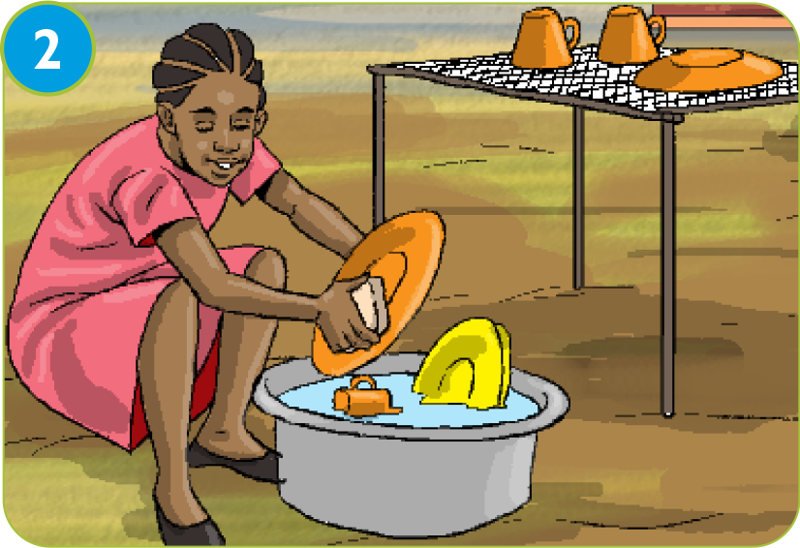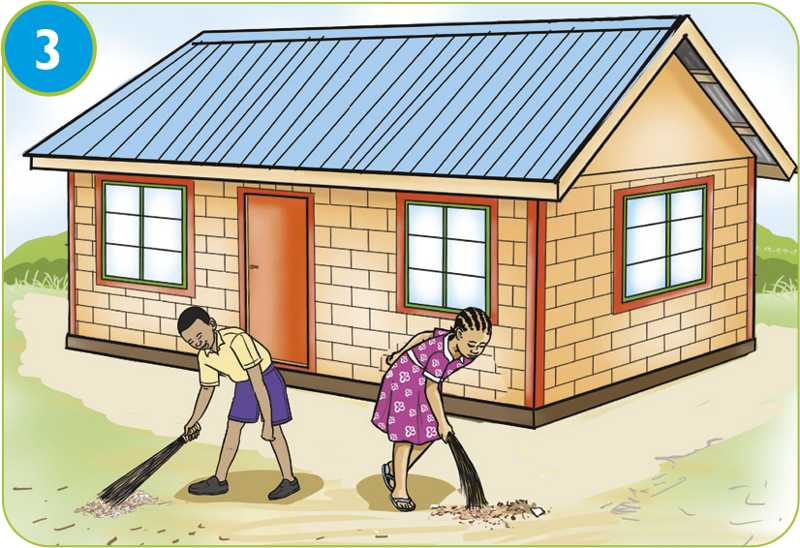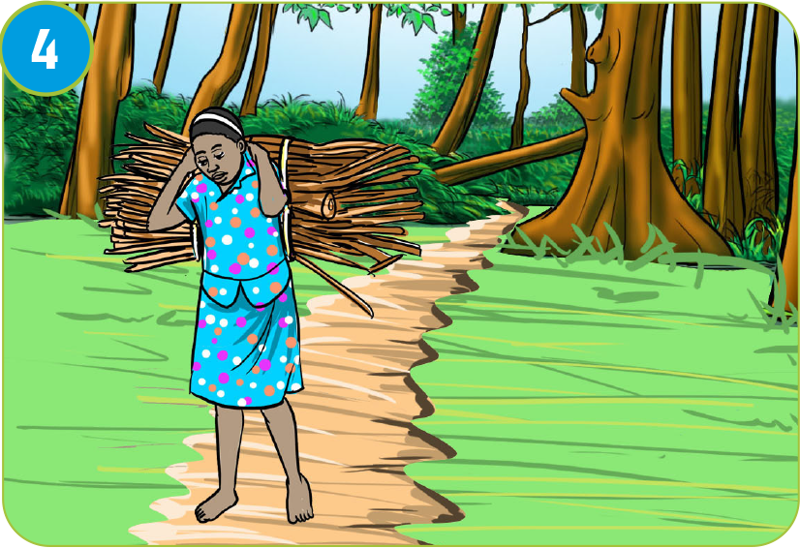Let Us Get Started
In groups, talk about the activities children do in your community. Do you think it is right for them to do these activities? Give reasons for your answer.
In groups, talk about the activities children do in your community. Do you think it is right for them to do these activities? Give reasons for your answer.
Look at the pictures below and then answer the questions.




Listen as your teacher reads the following story.
A long long time ago, animals lived in a kingdom called Jijali. It was a beautiful, productive country. The animals worked on the land and planted many different crops. There was enough food for everyone, and they lived in peace under the leadership of King Lion. It was a little heaven.
Then King Lion retired, and Hyena convinced the other animals to make him king. Giraffe, however, did not think Hyena was up to any good. Hyena was known to be mean and greedy, but since the majority had chosen him, even Giraffe had to give in.
Immediately after he sat on the throne, King Hyena made this announcement: 'My fellow animals, please listen to me. For a long time, the adults in this kingdom have done nearly all the work. Our children have just been having fun. They have become lazy and irresponsible. Therefore, from this year, the young animals will begin to do the work we have been doing. It is time for the adults to take a break and relax. After all, the young animals eat more food and will live here longer than us adults.'
'Sure! Sure!' Rhinoceros shouted. One by one, all the animals except Giraffe supported the king. The dear little animals began to do all the hard work. Some worked in the quarries to cut building stones. Others carried big loads from place to place. There was not a moment to spare to go to school, rest, or play. In the evenings, they would be as tired as worn-out shoes and would doze off even before they ate supper.
Giraffe was observing all this. He was very concerned. One day, he called a meeting secretly. Many animals attended because they respected him. 'Hear what I have to say. We have turned our children into servants. Just look at any one of them. They are weak and miserable due to fatigue. They no longer have time to go to school or play. Some keep falling ill because the work they do is too hard for them.

Others have been crushed to death by the machines they operate. We must put a stop to this!'
The animals nodded in agreement. 'What shall we do?' Impala asked.
'We shall ask Giraffe to be our king,' Monkey said.
All the animals cheered. Then they walked to the palace and in one voice told Hyena that they no longer wanted him as their king. He tried to protest, but the animals told him, 'You reap what you sow. You have made our children miserable and now you have to leave.'
Giraffe took over and there was much laughter, singing, and dancing. From then on, the young ones only did domestic tasks that were suitable for them.

1. Choose all the animals mentioned by name in this story.
2. Why was Jijali a good place to live in?
3. How would one describe King Hyena?
4. What made life difficult for the young animals?
5. Listen to the story again and pick out the words with the sound your teacher will tell you.
6. The following phrases have been used in the story. Choose their meaning and then use them in your own sentences.
7. What is the main message of the story?
In groups, record each other as you retell the story. Play the recording to other groups.
Read this poem aloud. Which sound is common in the words in green?
My dear, don’t fear
Though your ears may hear
Queer news throughout the year,
Never jeer at anyone
Nor veer off the right path.
Here is another piece of advice.
If peers near you
Have tears in their eyes,
Don’t cheer; stay near
And clearly show you really care.
Read these sentences aloud. Pay attention to the pronunciation of the words in blue.
Close your textbooks and play the following game in pairs. One of you will say a word that includes the sound 'ear' and the other has to immediately say a different word with the same sound. Repeat this to come up with as many words as possible.

What would you like to do with the text? The text is processed by artificial intelligence, it is not checked or edited! The text may contain errors. Check the accuracy of the text against the original text in the textbook.
Choose the files you want to add. Supported formats are txt, html, htm, pdf, odt, odp, ods, xls, xlsx, ppt, pptx, pps, doc, docx, rtf, png, jpg, jpeg and gif.
| Name | |
|---|---|
| remove |
NB! Links must begin with: “http://”!
Opiq uses essential cookies to make our website work, to help keep you safe, to analyse user interaction and to improve user experience.
Cookie is a small file which is sent from users computer to the website server. It includes necessary information for the website to operate and includes information about the user and their preferences.
Most of the cookies are necessary for the operation of Opiq. It is possible to deny analytical cookies and in that case your usage data is not used to develop and improve Opiq services. Read more